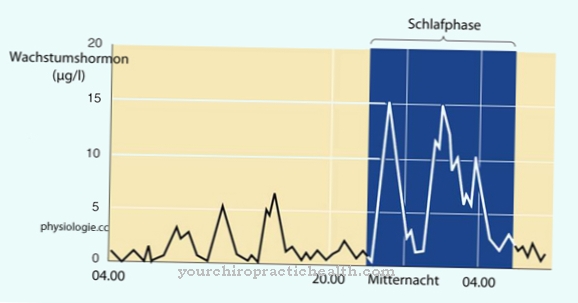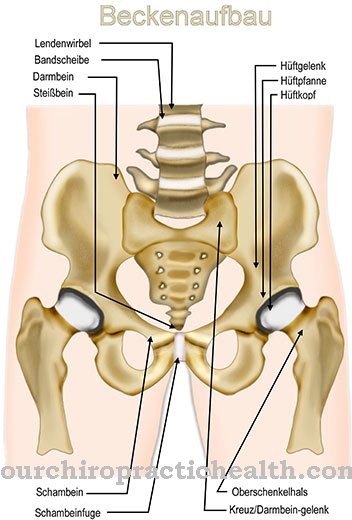The sense of time describes the coherent estimation of time periods in minutes and hours. In a broader sense, time perception can also apply to a sense of the day of the week, the time of day or the duration of a task.
What is the sense of time?

An adult person is able to distinguish a few minutes from several by feeling. He can estimate how much time he will need for a task or how much time he has invested in it. He can also roughly estimate what time it should be, what day of the week he is and how long he still has to work today, without necessarily having to look at the clock or the calendar. This judgment is called Time perception or sense of time.
Babies and toddlers have no sense of time at all, while older children are already able to understand clocks and calendars. From primary school age onwards, the sense of time develops, although there can still be strong deviations between the child's assessment and reality. Teenagers, on the other hand, have a very good sense of time, similar to that of adults.
In many mammals there is also a time perception: herd animals, for example, are often at the feeding station at feeding time, even if only because a lead animal knows that there will be food soon.
Function & task
People's sense of time arises from various influences. The methods of learning differ from each other. First of all, based on the incident light and the position of the sun, people can roughly determine whether it is morning or afternoon, noon, evening or night. It is believed that other mammals also orientate themselves on these characteristics.
In contrast to this, humans also have the clock to help and use a calendar, which gives them a learned sense of time. It may take some time before he learns to estimate the minutes and hours and to develop a feeling for the day of the week, but since this knowledge is already learned at elementary school age, every teenager is sure to master it.
The sense of time helps people plan their day and estimate how long planned activities will take. Of course, his own experience also helps him here. Of course, most people still have to look at the clock when it comes to planning to the minute, but it is not difficult for an adult, for example, to estimate the length of the commute to work and to be correct.
However, the sense of time also helps people to control important aspects of everyday life, such as food intake. Depending on the habit, the sense of time will at some point tell the person that it is time for the next meal. In this way, thanks to their perception of time, people can cope with their everyday life and realistically plan what they can achieve within a certain time window and what they have to delegate.
The sense of time naturally also helps with the feeling of boredom. This can distort the perception of time a little and make a boring phase appear longer than it really is, but the sense of time also helps to realistically estimate how long it will take before you can turn to other things again.
You can find your medication here
➔ Medicines for visual disturbances and eye complaintsIllnesses & ailments
The perception of time is innate. In the course of child development, sooner or later a day-night rhythm sets in. Even children can tell whether it is morning or evening. The sense of time, based on a clock or a calendar, on the other hand, is learned and presupposes that the person is mentally able to learn and understand such content. People with learning difficulties or intellectual disabilities may therefore not be able to achieve the same sense of time as a person with normal learning ability.
In the same way, with degenerative diseases it can happen that people's perception of time changes with them. This is characteristic of diseases such as Alzheimer's or dementia, whereby the sense of time worsens with the severity and progress of the disease. Nor does it water down to the same extent in every patient. Some are still able to estimate the time relatively accurately, the time perception remains intact. Others, on the other hand, are so severely affected by their illness that it can be assumed that they no longer have any sense of time and that a minute can seem like several hours to them.
A similar, but fortunately only temporary, distortion of the sense of time can also arise from the use of medication or substance abuse. When these substances affect human consciousness, it can often be observed that the perception of time is distorted. Anyone who has already received general anesthesia may be familiar with this effect - in the recovery room it is usually not possible to estimate what time it is and how long the procedure and the time it took to wake up until a clock is seen. If the effect of such substances diminishes, however, the sense of time returns.

.jpg)


























